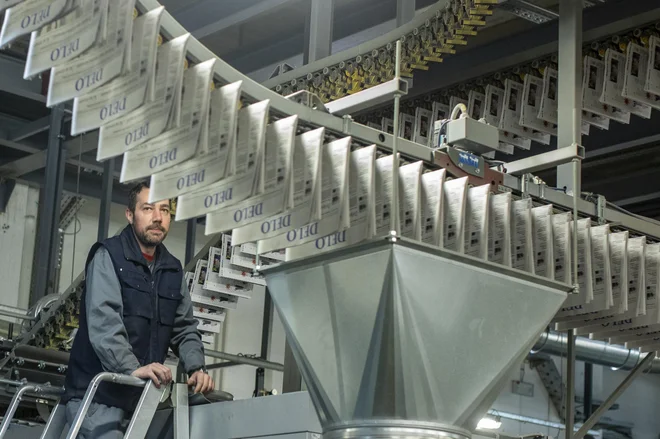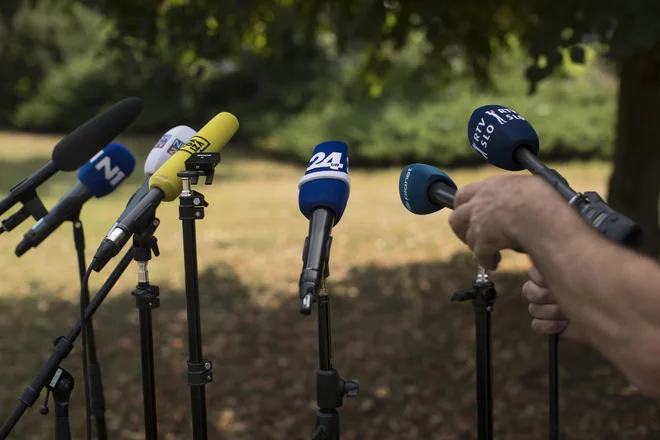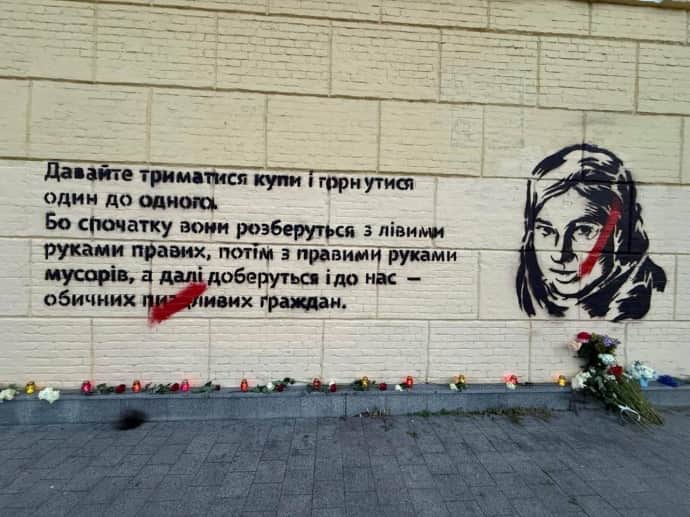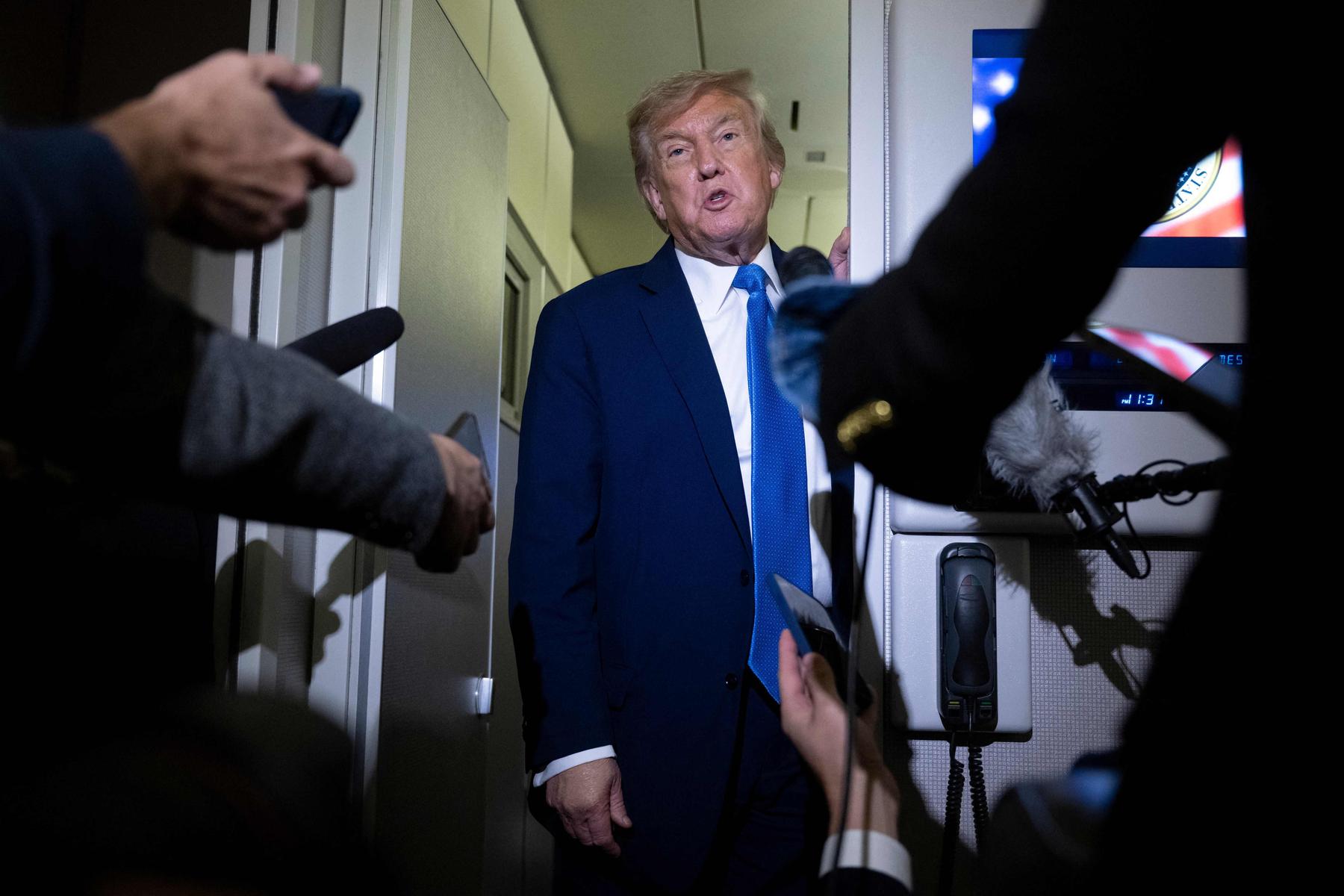jump by nine places but there are very many problems

May 3rd is International Media Freedom Day. They face many challenges everywhere – the downloads of the newspapers are falling, and confidence in the media is at a very low level. According to the results of the survey Slovenia’s mirrorby which Valicon records the level of confidence in individual institutions in our country, are media In April, two percentage points behind the government. Last year, Slovenia jumped by nine places at the media freedom scale last year. Could this be the cause of optimism?
Fifteen journalists were killed in the world in January 1 this year and 527 were detained. Physical attacks on media workers are the most prominent violations The Media Freedom Indexbut, as added this year, there is also a big and worrying problem with economic pressure.
The economic indicator at the media freedom index is at a critically low level due to several factors – the concentration of media ownership, the pressure of advertisers and financial supporters, and inadequate and slow assistance to the media, especially printed ones. The data collected by journalists without borders show that the media is captured between the hammer and the anvil – maintaining editorial independence on the one hand and attempting to survive in difficult market conditions on the other.
Director of this organization Anne Bocandé On this year’s International Media Freedom Day, he warned that « it requires the provision of freedom, independence and plurality of the media landscape stable and orderly financial conditions. Without economic independence, there is no media freedom. «
She added that financial pressures and a match for who will attract readers, spectators and listeners faster and more, leads to a danger of worsening quality reporting. Also, the media can become a victim of oligarchs and public authorities trying to take advantage of the industry problems.
The economic situation needs to be regulated, Bocandé warned that journalists will be able to fight against false information and do quality. « Media financial independence is a prerequisite for providing or creating free and trusted news that serve public interest, » said the director.
Photo: Voranc Vogel/Work
Where is Slovenia?
Slovenia ranked 33 in this year’s media freedom rankings, nine places higher than last year. The organization without borders argued that the current government of Robert Golob is relatively respectful of the freedom of the media and is now a more likely political pressure of opposition parties, who use almost every opportunity to discredit the media and individual journalists.
It should be emphasized that the freedom freedom index reflects the situation last year, when the government slightly raised a RTV contribution, and a new media law was being prepared, which is still not adopted, despite Golob’s pre-election promises that this will be one of the priorities in the event of power.
Better ranking on the rankings can also be attributed to fewer attacks on journalists and – meaningful in the context of this year – less dismissations in the media industry. This year, in the media outlets, Večer and the work have lost several journalists and other employees. That the situation in journalism is by no means rosy is shown by the fact that Slovenia was only 18th among 27 Member States of the European Union.
Also organized by journalists without borders, the rise of Slovenia on the scale is also partly due to the fall of other countries, such as Slovakia, where independent media were heavily exposed last year, including their public service broadcaster RTVS.
But is there a noticeably better ranking reason for optimism? “It is certainly a relative success for Slovenia. Every rise on such scales, which have nevertheless have the same methodology for many years, represents at least an obvious international recognition of certain improvements in the Slovenian territory. This is progress, but probably Slovenian journalists are not satisfied with the current situation, as well as I myself. In particular, the information on the ranking of Slovenia within the members of the European Union, where we are ranked quite poorly, is more realistic, and that is more realistic, a picture, « the professor emphasized Marko Milosavljevic from the Department of Journalism of the Faculty of Social Sciences in Ljubljana.
He sees himself as a great threat to quality and independent journalism in the economic intolerance of the Slovenian media space. « Slovenian journalism is less and less independent, the media is increasingly dependent on state co -financing, in itself it would probably be difficult to survive without state subsidies, without various forms of state aid, » he noted.
With economic threat or weakness together, the possibility of political abuse is often coming. According to Milosavljevic, it is only after the adoption of the Media Act will only be shown in this area – what, therefore, these new state assistance schemes mean from the point of view of potential political abuse.

Photo: Jure Eržen/Work
Slapp-Taxes in Slovenia are not a rarity
The first on the freedom of the media was Norway last year, followed by Estonia and the Netherlands, in fourth or fifth place are Sweden and Finland. Slovenia has ranked 33, Slovakia, Slovakia is 38th, neighboring Italy has fallen by three cities and is 49. In the last three places, China, North Korea and Eritrea are in the rankings. Turkey and Russia are also in the so -called red zone. Ukraine is 62nd, Palestine 163rd and Israel is 112.
In the organization without borders, journalists have noted that within the European Union, the interference of power in the media is problematically observed in Hungary (ranked 68th) and in Cyprus (77th), due to the impenetrable and uneven distribution of state advertising funds. When the media or journalists resist pressure, many are faced with strategic so-called Slapping Tiles, which aims at financial exhaustion of the media or journalist. In Slovenia, such lawsuits are not uncommon. Recently, legal remedies were misused at the Ljubljana Psychiatric Clinic when six of the compensation Slappings were launched against journalists or editors N1 and the owner or media publisher.
Marko Milosavljević hopes that the state or government will take appropriate measures in the area of limiting Slapp-toes with the implementation of the Slapp-Directive, led by the Ministry of Justice. The implementation of the digital service act and the artificial intelligence act will also bring some urgent positive measures.
The media freedom index measures non -profit organization journalists without borders. The scale is based on research on the freedom of journalists that they can (or not) create and publish news that are in the public interest but independent of political, legal and economic interference. It is also important that journalists are not at risk physically or mentally. Countries are classified from those with the most free media to those with the least. On the map are the countries in which the condition is most worrying, colored with red, and those in which the condition is good, with green.
What would you like to have media and journalists on the day of the media?
I want upright, educated, scanned journalists who respect the journalist code, and just such media owners. I want educated, well -regarded, curious and critical listeners, viewers and readers and politicians who will introduce media education into the education system.
Nevenka Deljekara retired journalist
I wish us more readers, more terrain and upright posture; Censorship is a circumstance and self -censorship is a decision. I wish we could distinguish between journalism and activism. I wish we were to take care of a beautiful language.
Lucian ZalokarNedela journalist
In recent months, we have been constantly listening to artificial intelligence, which can really be helpful. But it can’t go to the field. Artificial intelligence will not talk to people who have been left without everything in the flood, because you cannot even call them if there is no signal. Artificial intelligence will not take pictures on its own what is happening in flooded areas. Artificial intelligence will not get with someone in the afternoon or evening who wants to tell the journalist about the unhappiness that is happening because he does not dare to talk on the phone, let alone by email. And when the journalist and the photographer do their job, they will be able to take care of the text as it should be as it should be so that it can be treated (our texts are at graduation). But editors are watching over everything. That’s the right medium. Not some vocabulary without any responsibility on social networks. The right medium is only responsible to the public. Readers, listeners, viewers. Is that way today? Unfortunately not always. And real journalists are aware of this and warn. Also through the Association of Journalists of Slovenia. We are the biggest critics in the journalistic honorary tribunal. And the right journalist doesn’t care if he finds himself there. We point to catastrophic conditions. There are fewer and fewer of us, and less and less real editors with spine are working. That is also why we respect those who remain so. On the occasion of the International Media Freedom Day, both for myself and for Slovenian journalism, I wish that the public would nevertheless recognize the value of real journalism. That the medium is not a social network, because it has neither a journalist, a photographer nor an editor, much less a proofreader … that the whole society depends on the right, responsible journalism. I wish journalists would not feel like we were doing in vain and not for free and that a couple of euros for the newspaper is not quite a lot. Are these desires utopia? We will insist on the right journalists. The orchestra also played on the Titanic to the end. I hope the company finds out where we are.
Špela Kuralta journalist works
I want more time to prepare articles, to explore and read, to write more time, to find the right words. Because readers deserve it. I wish that all colleagues would also be aware that we are exclusively here and just because of them. I also want less compressing with pissuns, servants or whores whenever I open social networks. I wish we were aware that information is power. In order to know how to separate the grain from the weeds. But most of all, I wouldn’t wish that I would not wait for the day when the reading tribe is extinct.
Agata Rakovec Kurenteditor of Nedela








